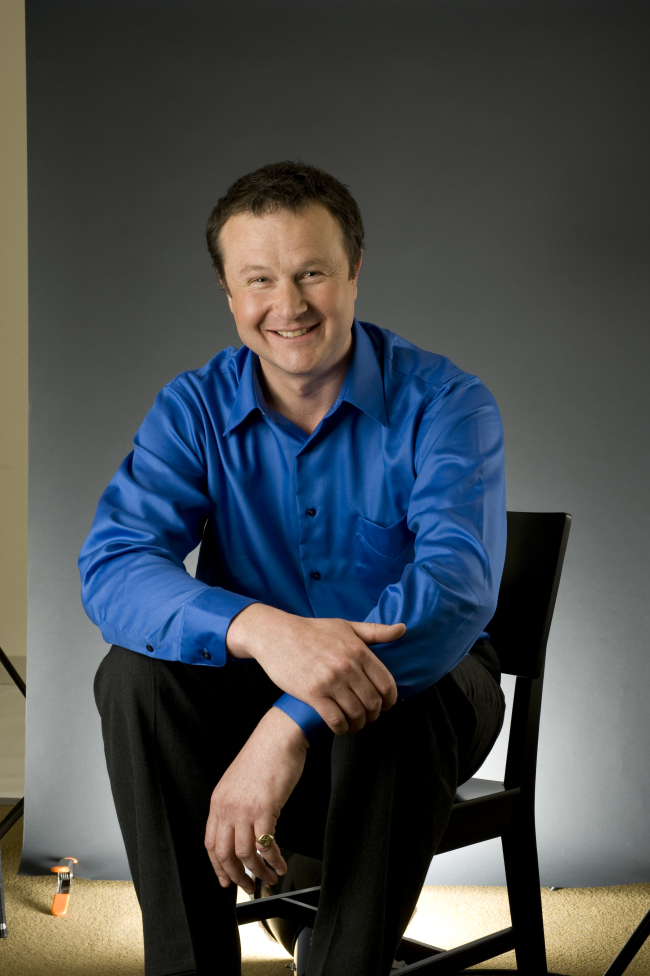[Herald Interview] ‘Keep English learning fun for kids’
By Yoon Min-sikPublished : April 22, 2014 - 20:19
As U.S. President Barack Obama had once pointed out, South Korean’s zeal for education is second to none.
But English language education author Patrick Jackson said effort alone is not enough when vying to become a polyglot. For young language learners, the key is to keep the work interesting, enjoyable and connected to the real world.
“The amount of content (Korean) students go through in a year is much more than any other place I know, more than possibly anywhere in the world,” he said.
“But it’s important to try and keep that study happy, connected (to the real world), and help students maintain a positive mentality about studying,” Jackson said ahead of his lecture to Korean teachers in Seoul about effective language education methods.
But English language education author Patrick Jackson said effort alone is not enough when vying to become a polyglot. For young language learners, the key is to keep the work interesting, enjoyable and connected to the real world.
“The amount of content (Korean) students go through in a year is much more than any other place I know, more than possibly anywhere in the world,” he said.
“But it’s important to try and keep that study happy, connected (to the real world), and help students maintain a positive mentality about studying,” Jackson said ahead of his lecture to Korean teachers in Seoul about effective language education methods.

The use of songs and stories can make the classroom a stimulating place for students, according to the 46-year-old Irish native.
“Everyone wants to learn grammar and vocabulary of course, but we also want to include stories that will help students see the bigger picture of the world.”
His popular English-learning book series, “Everybody Up,” focuses on the fun factor. The book’s songs, many of which were written by big-name artists like Julie Gold, are designed to prompt children’s interest in studying.

One of the reasons why the interest factor is such a priority is because it is a growing global trend to teach young learners English.
“I believe the practice of kids becoming exposed to another language early in their life is very important. It expands their view of the world,” he said. “But if you make it miserable for kids, they’ll hate it (English learning) for all their lives.”
Jackson emphasized the importance of training children to use English rather than to blindly memorize words.
“Finding interesting connections for the language you’re learning is what I hope to encourage people to do.”
While most Korean students spend hours studying the lingua franca, many say they are reluctant to speak to native speakers. This is largely because most of their language learning is done via lectures and memorizing textbooks.
To fluently use what students have learned, Jackson said it is important for students to apply the language via subjects they are studying at schools. For this purpose, he said the last lesson from each unit of “Everybody Up” is connected with a school subject such as science, art or social studies.
Jackson said teachers also need to tap into the wealth of quality content in English, and the digital age has enriched the pool of such content. He added, however, that the quality of the content is only as good as the teacher using them.
“It’s fun to imagine what will happen in a few years. But I think the success or failure of education projects usually comes back to teacher training,” he said.
All the same, Jackson voiced excitement at how the digital age and social media may reshape the teaching and learning process.
“The things we can do now are mind-boggling. It’s a brave new world.”
By Yoon Min-sik (minsikyoon@heraldcorp.com)













![[KH Explains] How should Korea adjust its trade defenses against Chinese EVs?](http://res.heraldm.com/phpwas/restmb_idxmake.php?idx=644&simg=/content/image/2024/04/15/20240415050562_0.jpg&u=20240415144419)







